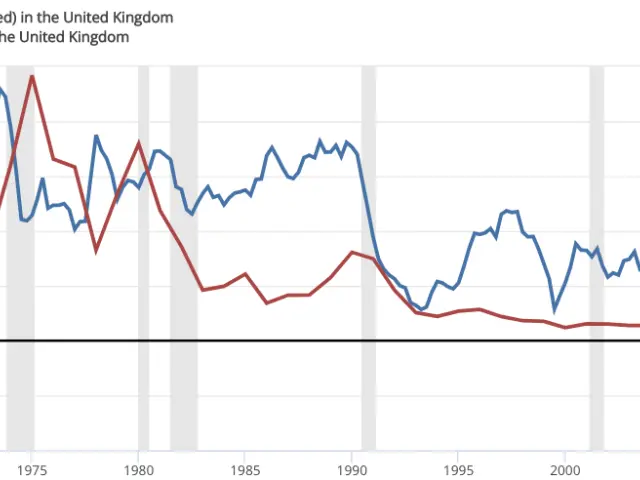Rewritten Article
Enhance Two-Factor Authentication Immediately for Gmail, Outlook, and VPNs due to FBI advisory
In a recent alert, the Federal Bureau of Investigation (FBI) has sounded the alarm over a series of attacks including ransomware threats delivered via the U.S. Postal Service, an ongoing campaign by ghost attackers, and advanced threats targeting Gmail users. To combat these cyber threats, the FBI advises enabling two-factor authentication (2FA) for webmail services such as Gmail and Outlook, VPNs, and other critical systems. Here's the lowdown on these latest warnings.
Medusa's Mayhem: FBI and CISA Issue Joint Warning
Making waves in the digital world is Medusa, a ransomware-as-a-service provider known for striking at least 300 victims from the critical infrastructure sector since June 2021. Characterized by using social engineering and unpatched software vulnerabilities, the Medusa gang employs tactics that FBI researchers have been monitoring closely for weeks.
Working closely with the U.S. Cybersecurity and Infrastructure Security Agency (CISA), the FBI released a joint cybersecurity advisory on March 12, offering valuable insights into the Medusa operation (AA25-071A). This detailed alert, however, is best left to cybersecurity professionals to fully understand. To help you protect your organization, let's focus on the provided advice for mitigating Medusa attacks.
Defending Yourself from Medusa: Actions to Take Now
With Medusa ransomware campaign in full swing, here are the immediate actions recommended by the FBI for all organizations:
- Require 2FA for services whenever possible, but prioritize webmail, VPNs, and accounts with access to critical systems.
- Use long, complex passwords and avoid frequent changes, as these can undermine security.
- Keep multiple backup copies of sensitive data on physically separate, secure servers.
- Maintain software, operating systems, and firmware up to date, focusing on patching known exploited vulnerabilities.
- Monitor your network for suspicious activity, unauthorized access attempts, and potential ransomware infiltration.
- Filter network traffic by blocking unknown or untrusted sources from accessing internal systems.
- Implement strict access controls, restricting administrative privileges, and disabling command lines, scripts, and unused ports.
Laughing All The Way to the Bank
Not everyone is pleased with the advice suggested by the FBI to combat the Medusa ransomware threat. Data-driven defense evangelist Roger Grimes, from KnowBe4, argued that such warnings continue the tradition of emphasizing technical fixes over awareness training. According to Grimes, KnowBe4 statistics indicate that social engineering is involved in 70-90% of all successful hacking attempts, yet the joint advisory overlooks security awareness as a primary defense mechanism.
Grimes pointed out that the misalignment between the primary attack methods and the recommended mitigations allows hackers to persistently succeed, leaving them with a good laugh.
Embrace the Danger, Stay Informed
As cyber threats evolve, it's crucial to stay informed and take action to protect yourself and your organization. Stay on top of the latest warning signs, threats, and best practices for staying secure online. By doing so, you'll enhance your resilience against cyberattacks and boost overall cybersecurity for everyone.
- The Medusa ransomware, a service provider causing worry for many, has been active since June 2021, striking at least 300 victims from the critical infrastructure sector.
- In the ongoing battle against Medusa, the FBI advises prioritizing the use of two-factor authentication (2FA) for webmail services like Gmail, VPNs, and other critical systems.
- Critics argue that the advice from the FBI, while valuable, heavily focuses on technical fixes and overlooks the importance of security awareness training, which has been involved in 70-90% of successful hacking attempts.







